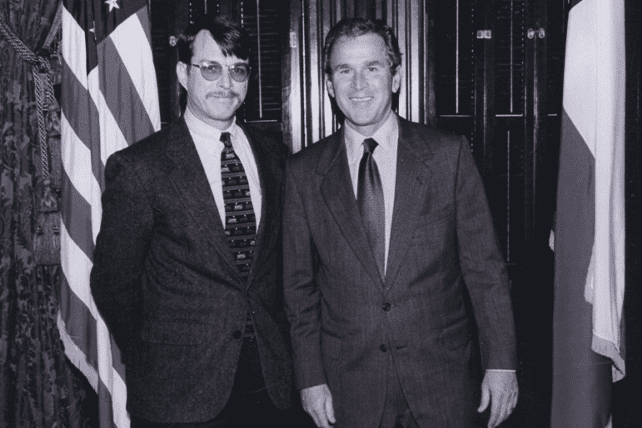You’ve been an advocate for the stalled federal “Fairness for All Act,” which you describe as “protecting in federal civil rights law the rights both of those committed to progressive sexuality and those committed to morally conservative sexuality.” Why has it not become law? Do you think it ever will?
I pray that it will because it’s not good to have continual battles. It’s not good for people who are unprotected. It’s not good for religious organizations to face a strain of lawsuits. Getting your rights through the courts is wonderful if that’s the only way you can do it, but that’s a very expensive and long-delayed process. It doesn’t necessarily mean others and other organizations in the same circumstances have their rights protected, and I don’t think those rights for religious organizations ought to be at the expense of people who have different views and practices of sexuality and who ought to be protected as well. I think it’s just a pretty troubling and not healthy back-and-forth.
The White House faith-based office, with different official names, has continued through Democratic and Republican administrations. What concerns you about what’s changed over the years?
I think the offices, to some extent, have become a little bit more kind of cheerleaders for administrations and less reformist. And I think also that Congress has not resolved the gay rights and religious freedom thing. That’s also affected the grant making and this area of government’s relationships.
Is there an example you would give related to the cheerleading, and have you seen it in both kinds of administrations?
One thing is the extent the White House office has been linked with the Office of Public Engagement, (or) Office of Public Liaison. That’s happened in both Democratic and Republican administrations.
It’s very interesting: In the current Trump administration, there’s a White House (Faith) Office right in the White House, and we’ve seen a lot of photos of religious figures coming in and praying with the president. And at the same time, that office has an extremely strong set of duties in the executive order that is about grant making and about seriously thinking about how government does its work, and it’s located with a connection to the Domestic Policy Council.
What do you think is most misunderstood about the faith-based office?
I think the continually misunderstood issue is that either the White House office or the (related Cabinet-level) centers decide how the federal government is going to spend its money — like they sit there with a pot of gold and kind of dole it out to favored agencies. That’s never been the task. But the government does have this grant making, contracting, loans, voucher programs and all of that. And the question just was, in that financial process, were faith-based organizations getting a fair shake? Were programs designed in a way that utilized the gifts that faith-based and community organizations have?
But still, it’s a very persistent idea that if you just have a chance to talk to that person in the White House then maybe you could come away with $5 million or something. And people have been pretty disappointed to discover that was not the case.
Have you had a role in helping this notion of the faith-based initiative spread, not only to different administrations of different parties, but also to other countries?
A group of South African churches said, “Would you come down here and talk to us?” That (1997 visit) was after apartheid. They had to reorganize a lot, and they realized that churches of all kinds and other houses of worship played such an important role. I was able to talk with them and keep a little contact over the years for a while.
I was invited (in the mid-2000s) to address a new research project in the European community looking at a number of different countries to ask about the role of faith-based organizations in those countries. Despite the fact that they had many government-run services, they were discovering that there were a lot of gaps and there were a lot of roles that were being played by religious organizations.
What’s next for you?
I wrote a significant study on the faith-based initiative over the years, and I’d like to develop that out a little further. There are so many things that are part of the faith-based initiative that nobody teaches anybody how to do.
If you’re a faith-based organization, you’re thinking about applying for money, one just basic thing is: Don’t take too much money from government because then when government policy changes, what do you do? So I’d like, maybe on a website, to have that article, and then all these attachments that are practical.
This article originally appeared here.

